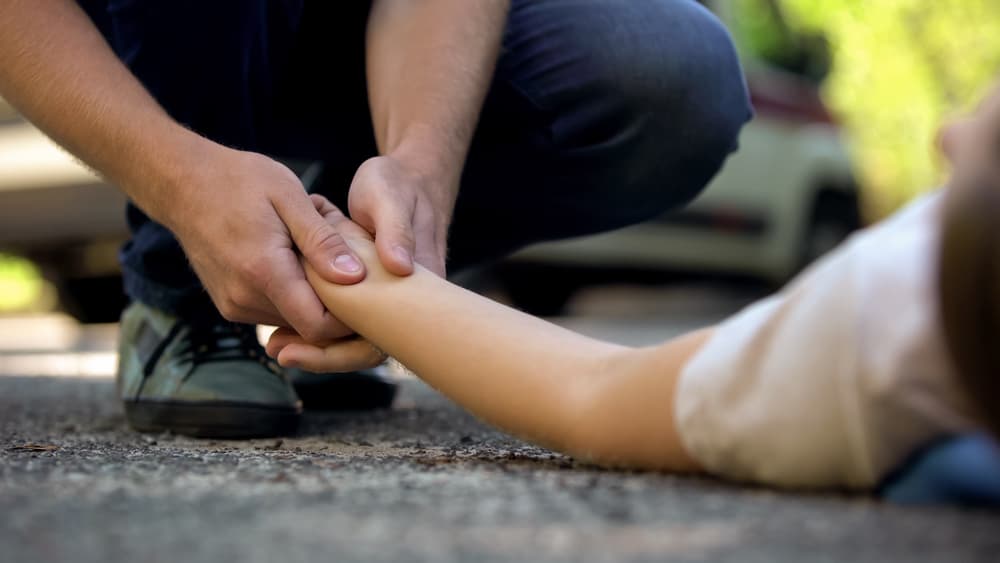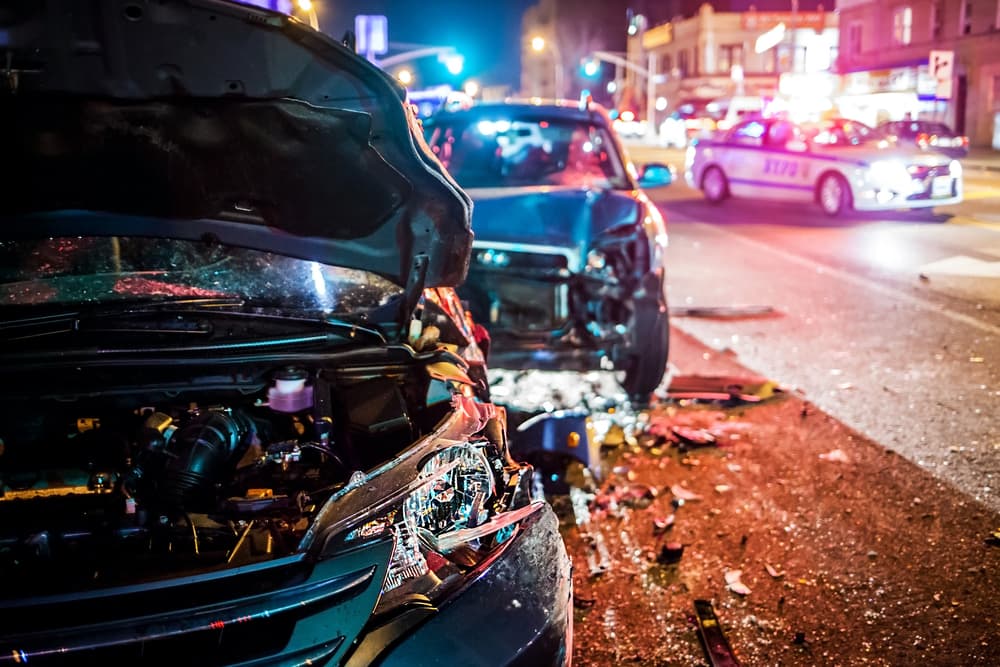Filing a wrongful death claim after a car accident can help you receive justice and financial compensation for your loved one’s untimely passing.
You could:
- Seek compensation from your own car insurance policy
- Sue the party responsible for the fatal accident
- Pursue compensation from both your own policy and the liable party’s
Filing a Wrongful Death Claim With Your Own Insurer

Every state has its own laws regarding who must purchase car insurance, when, and the required policy minimums.
After a car accident involving a wrongful death attorney, you should inform your insurer by logging into your account on their website or calling them.
Once you file a claim, your insurance company might:
- Send an insurance adjuster to investigate, take pictures, collect evidence, and interview the involved parties,
- Determine who was at fault and who deserves payment, or
- Send you a check, if they decide you qualify for payment
What Does My Car Insurance Cover?
Depending on where you live, you may need coverage for:
- Bodily injuries: This will cover any medical expenses you incur while treating accident-related injuries.
- Property damage: This helps you pay for repairs to a damaged car. You could even use it to purchase a new car if the old one is beyond repair.
- Uninsured/underinsured motorist: If the driver who hit you had insufficient or no insurance, this policy would help you cover the losses that the uninsured driver cannot afford to pay for.
You may have chosen to purchase other types of insurance on top of state-mandated minimums. You can talk to your insurance agent, a car accident lawyer, or both for more information about your policy.
How Insurers Investigate Car Accidents?
Insurers generally want to spend as little as possible on any given case.
As such, they retain insurance adjusters who investigate each accident claim to:
- Make sure the claim is legitimate
- Make recommendations regarding how much the insurer has to pay
- Offer fast but insufficient settlements if they think it will make the claim “go away” faster
Insurance adjusters often act quickly.
Even if you have not yet fully processed the loss of your loved one, an insurance adjuster may contact you to ask for:
- Information regarding what you remember about the crash, including your loved one’s behavior right before the accident (or your own behavior if you were in the car as well)
- A recorded statement about what happened
- Any paperwork, such as bills or photos, you possess that may shed light on different aspects of the accident
- Permission to take photos of the damage done to your loved one’s car
In addition to speaking with you, the adjuster might try to contact the other driver and any witnesses. Their goal in investigating is to find a contradiction or minor inconsistency that they can use to deny coverage. You may find it difficult to think clearly enough to avoid falling into the insurer’s questionable tactics. Remember that you can always get legal help from a lawyer as you figure out what to do.
Protecting Your Rights after an Accident
While you should make efforts to cooperate and deal with the insurance company as they investigate, your cooperation should not come at the expense of your rights.
You might find it helpful to hire a wrongful death attorney to work for you because:
- Another involved party may make counterclaims against your loved one (e.g., they did not wear a seatbelt, and they might have survived had they done so).
- An insurance company may try various tactics to minimize what they pay you.
- You are understandably upset, so you may find it hard to concentrate on a topic as complex as the legal process.
To help a lawyer protect your rights throughout your entire case, consult one as soon as possible after the accident, as they can:
- Communicate with all insurance companies on your behalf
- Advise you on what to say and what not to say to the insurance companies
- Calculate the true worth of your case, preventing an insurance company from undervaluing your claim
Your Case’s Worth Versus Your Insurance Coverage
Your insurer may or may not cover all the damages you incur in a car accident, especially in wrongful death cases. Since your loved one’s medical expenses prior to their passing may have been very high, your policy might cover only a fraction of your expenses.
You should still file a claim with your insurer. This does not interfere with your right to sue the liable party for the remainder of your expenses, as well as other types of losses not covered by your car accident policy.
How to Sue for Wrongful Death
Would your loved one be alive today if someone else had exercised greater caution and care for others? If so, you can file a lawsuit against the at-fault party and receive damages that your insurance policy alone may not cover.
You have already paid enough for another party’s mistake. You deserve the chance to collect compensation from that party. This could entail:
Calculating Damages
How much is your wrongful death claim worth?
If you wish to file a claim after a car accident, you must know exactly what dollar amount to ask for in:
- Your loved one’s pain and suffering
- Medical expenses
- Grief and bereavement
- Loss of financial support
- Loss of companionship
- End-of-life expenses, including funeral costs
You and your lawyer can work together to arrive at an amount that covers all of your (and your loved one’s) losses.
It goes without saying that monetary damages cannot replace your loved one. However, compensation can give you one less thing to worry about as you pick up the pieces of your life.
Asking for Compensation
You will likely start this process by sending a demand letter to the liable party’s insurance company detailing:
- How the accident happened
- The consequences of the accident (your loved one’s demise, funeral expenses, etc.)
- How much compensation you are entitled to recover
- What you want the insurance company to do (contact your lawyer by a certain date, offer a settlement, etc.)
In rare cases, the insurer will agree to your demands as written, and you do not have to wait very long for a fair settlement.
Other times, however, they may resist paying what you have asked for, prompting your lawyer to:
- Arrange a time to meet with them in person and negotiate for a better settlement
- Meet with them several times to continue working on negotiations
- Keep in regular contact with you, letting you know how negotiations progress
In other cases, you have to take your case all the way to court.
Courtroom trials might seem intimidating, but your lawyer can take care of everything, including:
- Selecting jury members to consider your case
- Selecting witnesses to testify on your behalf and preparing those witnesses for questioning and cross-examination
- Deciding whether putting you on the stand would help your case
- Submitting evidence for the jury’s consideration and walking them through that evidence
- Delivering persuasive opening and closing statements, so the first and last thing they hear from your lawyer are strong arguments in your favor
Receiving Compensation
If your lawyer’s efforts bear fruit, then at the end of the legal process, you could receive a check for everything you asked for.
Neither negotiations nor a trial cannot guarantee the results you want. No lawyer can promise to win compensation for you, either.
However, advice and support from a legal professional can:
- Take the burden of performing complex, confusing legal tasks off your shoulders
- Make it easier for you to avoid common mistakes or pitfalls
- Ensure you ask for the right amount of compensation and make well-informed decisions that work for you and your family
Why Might Someone Sue for Wrongful Death After a Car Accident?
Recent statistics from the National Highway Transportation Safety Administration (NHTSA) show that fatal traffic accidents are on the rise throughout the United States. Risky driving behaviors have helped fuel this increase.
You could have a viable wrongful death case if your loved one passed away after an encounter with a driver who:
- Was intoxicated: Alcohol and certain drugs can impair a driver’s judgment, causing them to make dangerous decisions. Drunk driving is illegal and inexcusable.
- Drove too fast: This behavior does not refer only to exceeding the speed limit. In some situations such as inclement weather or stop-and-go traffic drivers have a responsibility to go even slower than the posted speed limit.
- Drove aggressively: This may include following too closely, weaving between lanes of traffic, or road rage.
- Ignored traffic safety: Stop signs, traffic lights, and other signals exist to ensure everyone can share the road safely. Failing to obey them could end up hurting or killing another person.
In other cases, you may sue a different liable party, such as a:
- Mechanic: You and the other driver rely on professional mechanics to keep your vehicles in working order and let you know if the car needs repairs. Failure to do their job could lead to a fatal accident.
- Car part manufacturer: Some manufacturers allow customers to buy and use brakes, steering columns, or other auto parts despite knowing the part contains a dangerous flaw.
- Government agency: Usually, local governments bear the responsibility for fixing broken traffic lights, filling in potholes, and trimming branches that hang near the road. If they do not do so in a timely manner, you could sue them for a fatal accident resulting from their negligence.
A wrongful death attorney can make sure you sue all of the parties responsible for your loved one’s passing.
Whose Insurer to Approach After a Car Accident?
You may find it difficult to decide where to seek compensation after a fatal accident.
Many competing factors go into this decision, including:
- Who caused the accident and how much evidence your lawyer can find to prove their culpability
- How much your insurer covers versus how much you would have to pay out of pocket
- Your own personal preferences
After your loved one’s passing, you might feel so angry that you want to take all possible legal actions right away or maybe the thought of having to take any action at all leaves you confused and hesitant. Both responses are normal, and a lawyer can help you through them.
How Long Do Wrongful Death Claims Take?
Whether you seek compensation from your own insurer or someone else’s, you should prepare yourself to wait.
It can take a while for your case to work its way through the insurance and/or legal system because:
- The liable party, their representatives, or your insurance company might try to drag out proceedings hoping they can convince you to take a low settlement.
- Your lawyer needs time to find evidence and strengthen your case enough to withstand others’ scrutiny.
- The jury (if your case goes to court) may need time to consider the evidence and come to what they believe is a fair decision.
- Both you and the other side need time to consider all communications and settlement offers and to figure out how best to respond.
Your lawyer may give you a rough estimate of how long your case could take, but they have no way of accurately predicting this ahead of time.
Instead, you can rely on your attorney to:
- Try to cut through red tape and expedite the process without sacrificing the compensation you deserve
- Provide you with regular updates
- Let you know when something important happens
- Advise you on how to respond to each new development

Getting Help After a Car Accident Resulting in Wrongful Death
No family should have to suffer what you have. If you would like legal assistance with filing a wrongful death claim after a car accident, call a law office in Myrtle Beach. Many offer free, no-obligation case reviews to all potential clients.







